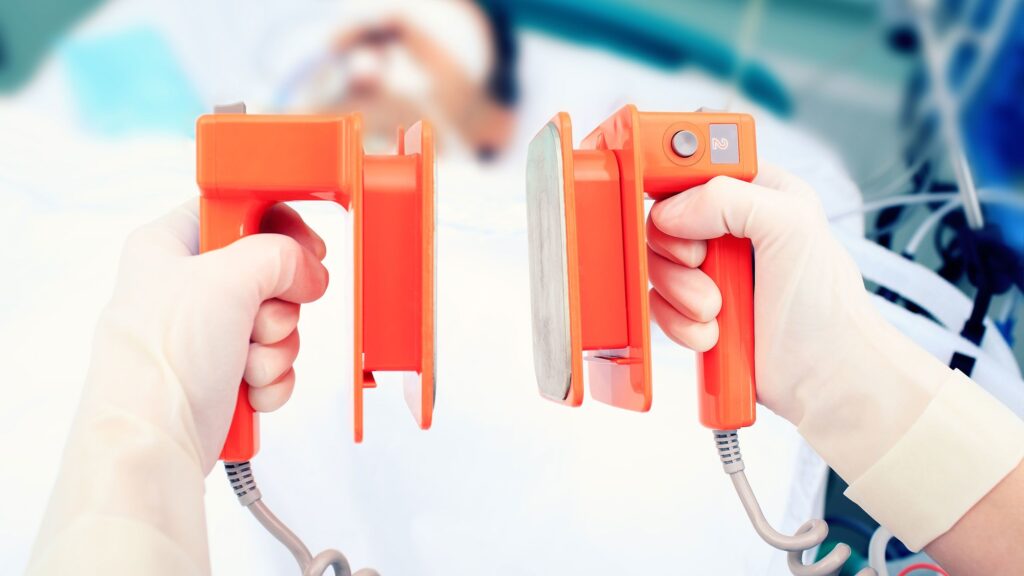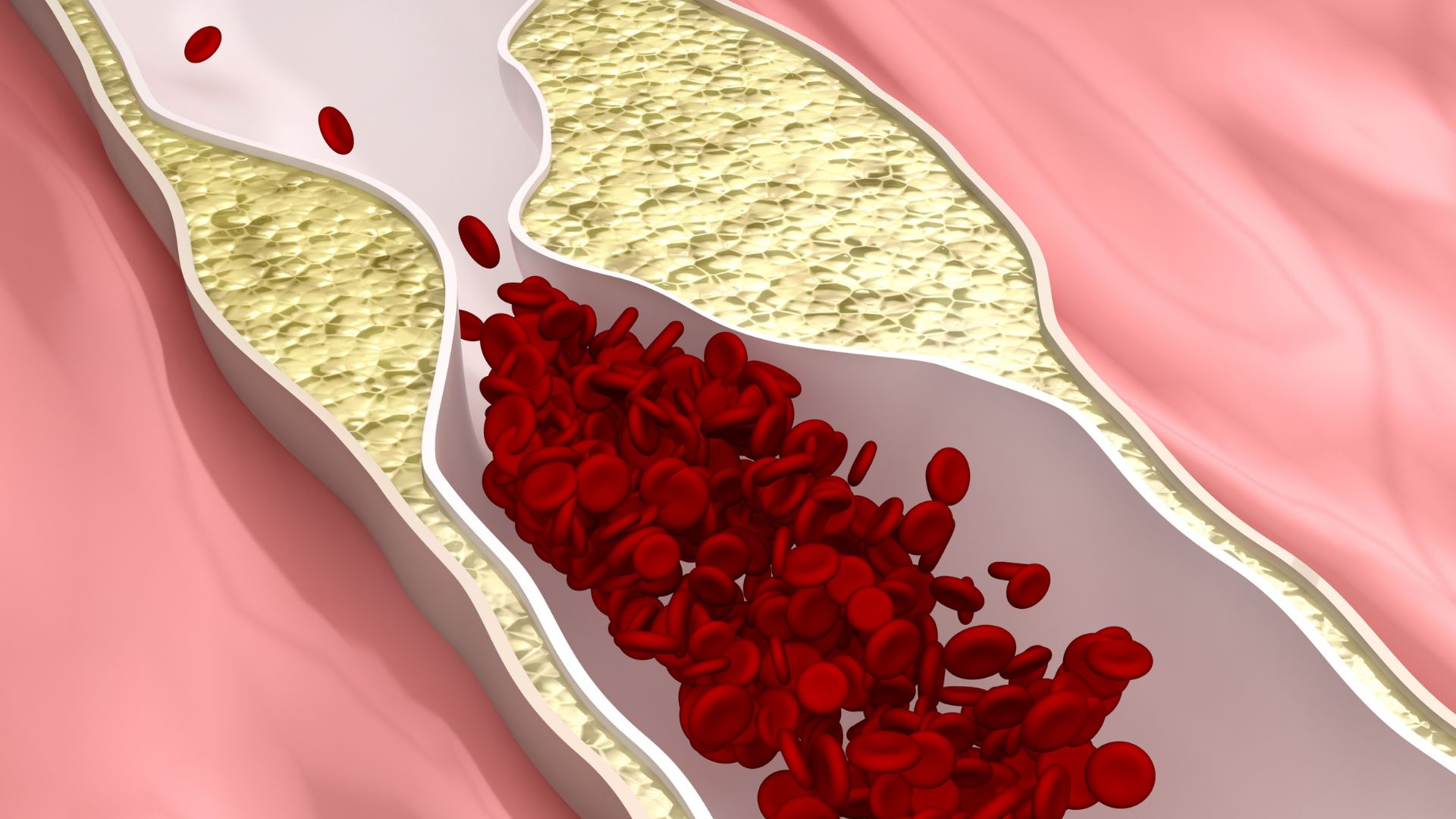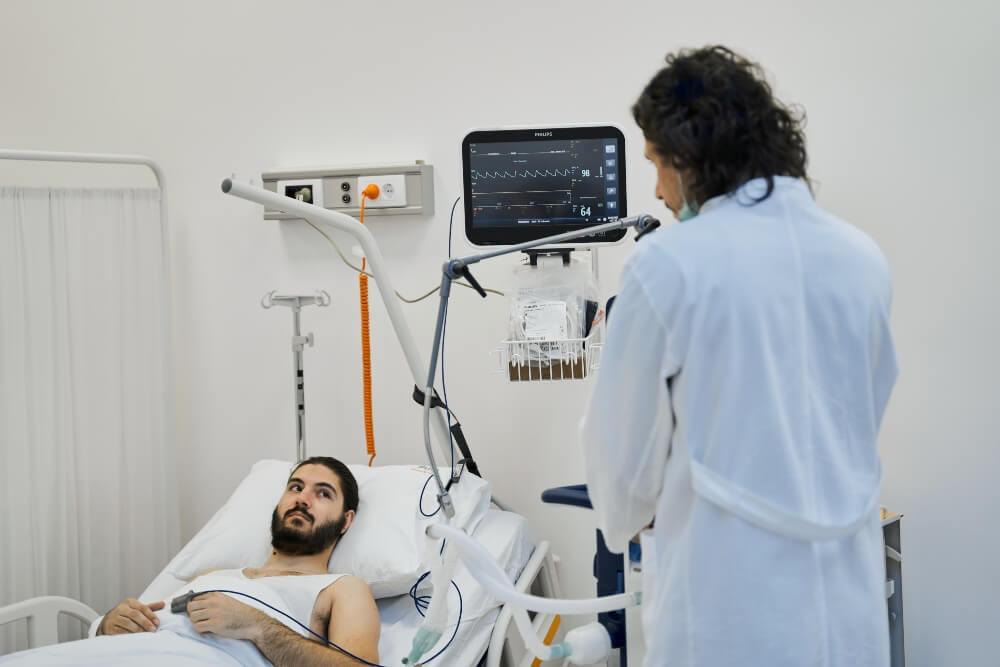The heart attack is serious, that is, an emergency medical condition in which the blood supply to the heart is suddenly blocked, usually by a blood clot.
A heart attack requires urgent medical attention. Call 194 and call an ambulance if you suspect a heart attack.
Lack of blood in the heart can seriously damage the heart muscle and can be life threatening.
Symptoms of a heart attack
Symptoms of a heart attack can be:
- Chest pain – the chest may feel as if it is being pressed or squeezed by a heavy object, and the pain may be transmitted from the chest to the jaw, neck, arms and back.
- Shortness of breath
- Feeling weak or unconscious (or both)
- Unexplained feeling of anxiety
It is important to know that not everyone experiences severe chest pain. This is especially the case with many women. The pain can often be mild.
Treatment of myocardial infarction
While you are waiting for an ambulance, it can help you chew and then swallow an aspirin tablet (ideally 300 mg), unless the person who has a heart attack is allergic to aspirin.
Aspirin helps to thin the blood and improves blood flow to the heart.
At the hospital, the treatment of a heart attack depends on how serious the condition is.
Two main treatments are applied:
- Use of medicines to dissolve blood clots
- Surgery to help return blood to the heart
Causes of heart attack
Coronary heart disease is the leading cause of heart attack.
Coronary heart disease is a condition in which the main blood vessels that supply the heart become clogged with plaque.
Before a heart attack, one plaque ruptures, causing the development of a blood clot at the site of the rupture.
A clot can block the blood supply to the heart, causing a heart attack.
Recovery from a heart attack
The time it takes to recover from a heart attack will depend on the amount of damage to the heart muscle.
Most people can return to work after a heart attack. One group of people feels good enough to return to work after only 2 weeks. It may take several months for another group of people to recover. How quickly you can return to work depends on your health, your heart condition and the type of work you do.
The goal of the recovery process is:
- Reduce the risk of recurrent heart attack by combining lifestyle changes (such as a healthy diet) and medications (such as statins) that help lower blood cholesterol levels
- Gradually restore your physical fitness so that you can resume normal activities (heart rehabilitation)
Heart attack prevention
There are 5 main steps you can take to reduce your risk of having a heart attack (or other heart attack):
- Smokers should quit smoking
- Lose weight if you are overweight or obese
- Exercise regularly
- Eat low-fat, high-fiber foods, including whole grains and at least 5 servings of fruits and vegetables a day.
- Moderate alcohol consumption





